ICYMI: How to Get Into Film Independent’s Artist Development Labs
EDITOR’S NOTE: the below blog piece originally ran in 2024. Our Filmmaker Tuesday session “Spotlight Your Story: Applying to Our Artist Development Programs” returns May 7. Special thanks to original writer Cydney Fisher.
***
So you want to be a filmmaker or work in entertainment, but have no clue where to start? Well, thank God you’re reading this right now! Each year, Film Independent provides programs and Labs dedicated to helping filmmakers from marginalized communities get their stories made.
Does that sound like you? Great! Keep reading, ’cause here are some application tips and tricks to impress, as shared by Film Independent Artist Development team members including Francisco Velasquez (Associate Director, Project Involve), Dea Vasquez (Senior Manager, Project Involve) and Daniel Cardone (Artist Development Associate, Nonfiction and Fiscal Sponsorship).
In this conversation, Francisco, Dea and Daniel break down what types of Lab projects they’re looking for, what makes an application stand out, the dos and don’ts of applying, and the opportunities that our Artist Development programs provide.
So, what’s a “Filmmaker Lab”?
Daniel: It’s a period of time where we take a project and we develop it intensely via a series of workshops. That is the best way to put it is, any project that is a part of a Lab will undergo a rigorous development period over a period of days where it will be looked at from story and technical aspects to open it up creatively while giving participants (“Fellows”) access to contacts in the industry they might not have had.
Dea: I’d like to add that we focus on career and personal development in the Labs, too!
Daniel: There are seven labs, plus Fiscal Sponsorship. Including…
Documentary Lab—an in-depth two-week program designed to help filmmakers who are currently in post-production on their feature-length documentary films. This full-time Lab takes place in May.
Episodic Lab—a two-week workshop where Fellows gain the tools needed to revise and refine their TV/streaming pilots and navigate a changing industry landscape. This Lab takes place in August.
Fast Track—a four-day film finance market where select fiction and nonfiction filmmakers pitch to top executives, financiers, agents and distributors. Fast Track takes place in November.
Film Independent + CNN Docuseries Intensive—a three-day remote workshop that gives filmmakers the tools and access needed to develop and pitch their nonfiction series to potential collaborators. This Lab takes place in late September.
Producing Lab—a two-week intensive designed to help creative independent producers develop their skills. This full-time Lab takes place in October.
Screenwriting Lab—two-week workshop designed to provide individualized story and professional development for emerging screenwriters with a fiction feature screenplay. This full-time Lab takes place in the first quarter of each year.
Project Involve—Film Independent’s signature program that for 30 years has helped filmmakers from communities traditionally underrepresented in entertainment, helping to hone skills, form partnerships and launch careers as successful working artists.
Fiscal Sponsorship—opens the door to nonprofit funding for independent filmmakers and media artists, allowing them to seek grants and solicit donations for their project.
What is Project Involve?
Dea: It’s a nine-month program that starts in February and runs to October. Project Involve is the only program we run where Fellows aren’t workshopping a project that they come in with. You create a new project inside of Project Involve. Each year we accept 30 artists from typically underrepresented backgrounds—writers, directors, producers, cinematographers, editors and rising studio executives and sometimes programmers and animators. Over the course of nine months, we make six shorts to screen at the end of the program. In addition, each fellow is paired with a mentor who is a working professional in their field. Fellows attend a series of masterclasses on the art and business of film. All sessions are in the evening or on the weekend, designed for people who have jobs and are LA-based.
Is Project Involve as intense as the other Labs?
Francisco: The intensives part rotates around depending on which part of the program we’re in. It starts with the writers. We put a lot of focus on development into the program. I’d also like to make it clear that we are not a training program. You do need to apply knowing what you’re getting yourself into as a writer, director, producer, cinematographer, etc.
Dea: You apply with a piece of your work. We need to see some sort of sample for al the Fellows, except for the executives, who apply with a resume and a critique sample.
Francisco: Once the program starts, the writers are writing every other week. Everyone comes to the development sessions. Then when we jump into pre-production, it’s the producers and the other disciplines. Then when we go into post, it’s the editors’ time to shine. It becomes intense for people at different times. For the producers and executives, it’s the entire time.
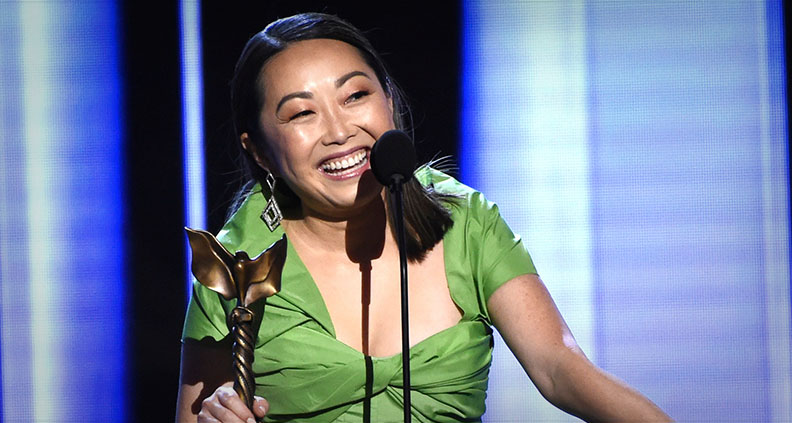
What’s required to apply to Project Involve?
Dea: We require people to apply with a work sample and a cover letter. The work sample does need to be narrative. It can be short. It can be episodic. It can be a web series. It could be a part of a feature film. We do not accept music videos or doc work, because this is a fiction program. If you’re applying to Project Involve as a writer, it’s because you’re leaning towards becoming a professional writer. You don’t have to have a staffing credit. Some produced work, yes, but it could be a short you made in school with your friends. We need to see something from you.
What is the makeup of Project Involve?
Francisco: We take in six directors, six writers, and then break down the producers, cinematographers and editors depending on the group. We take three executives, which function as development and production executives during the program. It’s a sort of pseudo studio system; we love to say Francisco and I are the nicest studio heads in town! The execs are underneath us overseeing two shorts each. We’re not a training program, but I’d say it is a bit of training for the executives. As an assistant you don’t always get the hands-on experience with the creatives like you do in Project Involve. If you’re on a desk at a studio or an agency, I would definitely recommend checking it out.
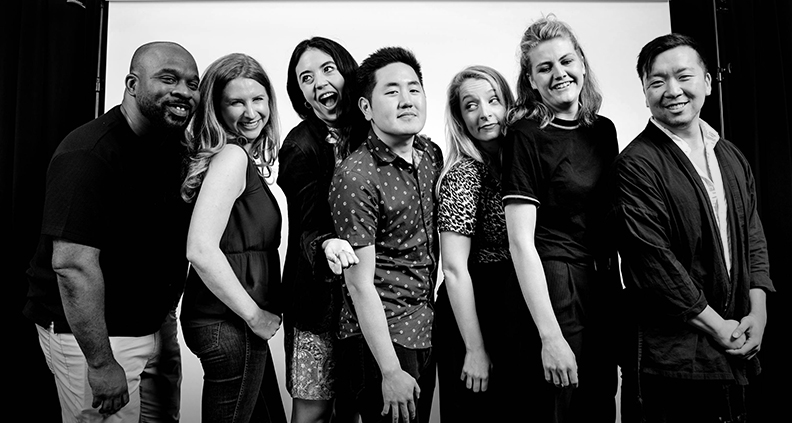
How about applying to the other Labs?
Daniel: The rest of the Labs are structured fairly similarly. All Labs take about six projects. Usually a project is represented by one person, but there are exceptions. The Labs usually take place over a two-week period in the daytime. If you’re accepted, you’ll have to negotiate around your work to make yourself available for those two week. As of right now everything is virtual, so you can be wherever in the world, but starting next year we’ll be in person again.
What sort of projects are you looking for?
Dea: I wouldn’t say we are only going to make tiny microbudget indie films. It’s about the heart of the project and the vision of the filmmakers. We’re looking for filmmakers who have a unique take that are bringing themselves fully to the project. The questions we need answered [from applicants] are:
- Why this project?
- Why you?
- Why now?
- Why this program?
What are you bringing to the story? Are you bringing yourself to the story? Is this a story only you can tell? Is this a story we haven’t seen told in this way? Does it feature a community we don’t see on film? The big ones for us are authenticity and respecting communities not typically depicted accurately in film and TV. It’s really about the heart and soul of the project.
Is there collaboration?
Dea: Big “yes” for Project Involve. You have to be collaborative, because you’re working with people. They’re going to be people who you haven’t known for your whole life. It’s a difficult experience for some filmmakers because this is the first time they’re making something outside of the structure of a school or with their friends. We consider it a pseudo-professional experience, because you’re making something with Fellows in the program that you met just a few months ago.
Francisco: The hardest part of the program is to put your ego aside. What I like to say is that we’re 30 Fellows coming together to make six shorts. Everybody is going to help make these shorts.
Dea: This type of attitude extends to the other Labs. Even when you’re coming in with something you’ve already developed that project is going to be poked and probed, analyzed and discussed not only by your mentors in the Lab but the people you’re in the Lab with. If you’re not open to receiving feedback—and maybe sometimes criticism and suggestions for how it can be improved—then there’s no point doing the Lab. You really need to come in saying, “I’m open to this process.” You also need to show up for the other Fellows in the program. It’s really important that you do the work.
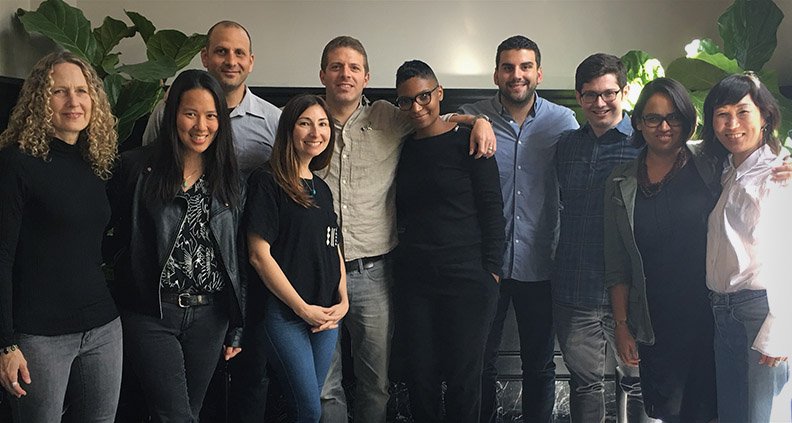
In the Screenwriting Lab, what types of projects are selected?
Dea: In general, we try to represent as many points of view as possible. Varying experience helps, too. We’re all working on things from a very personal place, so it’s very important for us that everyone in the programs are respectful and collaborative. Take a chance, make something a little weird. Because we’re here to support you at every stage.
Francisco: This is a safe space and everything stays in the room. Come with open minds and be ready to play.
Are there notes?
Dea: When we say “safe space” we mean you’re going to be respected and you aren’t going to be judged. We don’t mean that it’s not going to get rough and you’re not going to get criticism. We have an amazing script consultant, Ruth Atkinson, who leads the Screenwriting Lab’s development sessions for us. We have someone similar to Ruth in all the Labs. They’re setting the tone. Anyone in the group will also have one-on-one time with this creative mentor, too.
What sort of Doc Lab projects are you looking for?
Dea: We’re looking for almost finished productions. One of the most important phases in documentaries is post-production. A lot of the time in documentary, you’re composing the story in the edit room. This is the only Lab where you come in with the material almost done.
What about the CNN Docuseries Intensive?
Dea: This three-day intensive is looking on how to develop a series from concept to completion.
Fiscal Sponsorship?
DC: People are able to use Film Independent’s nonprofit status to raise funds as charitable donations for their projects. This allows donors to their project to receive tax deduction on whatever they donate to the project. Also a lot of grants require a fiscal sponsor. It’s a rolling deadline and can take up to six weeks to get a response.
Sloan grants?
Dea: The amounts of these grants differ. They’re usually for development but there is also a Sloan Distribution grant. If you have any inclination to write about science, do so and then apply to these programs!
Tips for a successful application?
Dea: The cover letter. We want to know why you, why now, and why this Lab? We want to see your passion for this project and how you think this Lab will benefit you. For me personally, I want to see a life narrative of the person applying. Where their journey has taken them and how this Lab will take them further? For Project Involve: Why now, why this program, why you, why this track? We want to know why you are applying to this program and what you hope to get out of it—and what you bring to the program. Other tips:
- A mistake I see a lot is people regurgitating their bios in their cover letters. We’re going to look at those, too. Your cover letter is your introduction to us.
- Make sure you’re addressing it to the right person and the right Lab.
- Don’t give me three lines and think you are going to get it.
- If you’re applying to a program again, we want to see new work or we want to know how you have developed as an artist since you first applied. People often apply three or four times before getting in.
- If you don’t get it, do not see it as a deterrent. It’s not because you aren’t good. It’s because you didn’t fit into this specific cohort at this specific time. It’s not about your worth as an artist or a person. Apply again.
Dea: It’s true for the Labs as well. We keep notes of strong people who don’t get into the Lab. So if you come back again, demonstrate some growth. What we don’t like to see people coming back with the same project, year after year. If you are doing that, stop it! We want to see growth. It’s also important that you be kind. When we have to reject you from the program, it does suck. We do remember the people who write us nasty emails because they did not get into the program. My favorite anecdote about that is: one year someone applied and didn’t get into the program and said, “Fine! I didn’t need you anyway!” They applied the next year and I remembered. So don’t do that. Be professional. Remember there are real people behind these emails and real people behind our social media, too. Be nice.
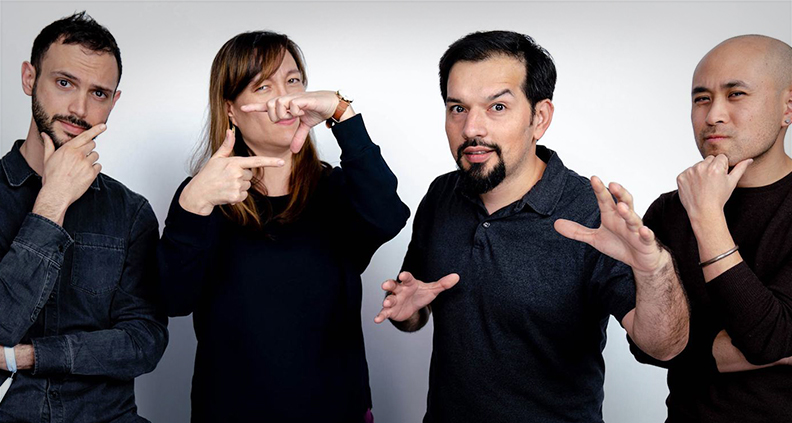
Ideal cover letter length?
Dea: Ideally one type page. 3 paragraphs something along those lines.
Francisco: Put yourself in our places and ask yourself what you want to read. You don‘t want to read a whole novel.
Dea: There are also word-count cut-offs in our applications. I would say between 300-500 is probably the sweet spot.
Is there a budget cap for potential Lab projects?
Dea: No. But if you have a larger budget, do you have a realistic plan/roadmap on how you want to hit this budget? Just submit one budget.
Can two people who wrote a screenplay enter a Lab together?
Dea: Yes. We don’t take teams in Project Involve, but we do in the Labs.
How does a multi-hyphenate determine which track to do in a Project Involve?
Dea: We do have a writer/director track but we only accept one or two per program. I would ask, What is ultimately your goal? Are you a writer who directs? A director who writes? If you are a writer-director and you think you can sneak into the program as a writer you are going to have a really bad time, because you’re going to question the director and wish you had directed this project yourself. Don’t do it.
Francisco: You can only go through Project Involve once. You go through as a director, that’s it. You can’t do the program again. Make sure you apply where your heart is.
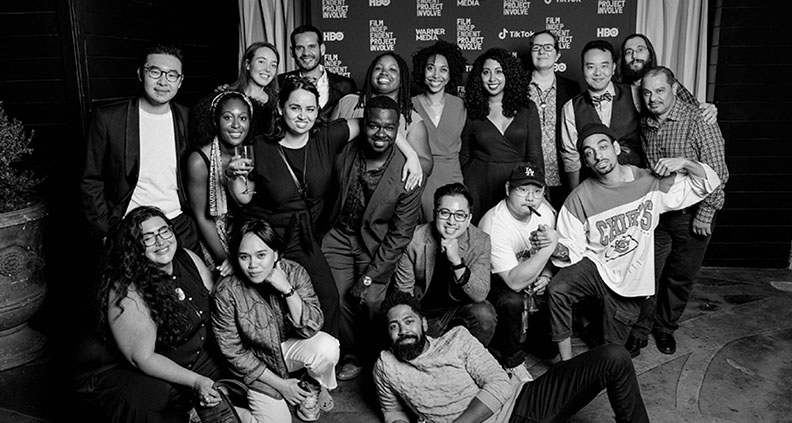
What happened to the Directing Lab?
Dea: COVID. It’s one of the few programs that benefit from being in person. We did one via zoom and it went okay but it wasn’t amazing. Right now we are reconfiguring aspects about it but there are no plans to reinstate it.
For more information on Fast Track or any of our Artist Development Labs and the projects that have been developed in them, please contact us. Additional information can be found at filmindependent.org.
For over 40 years, Film Independent has helped filmmakers get their projects made and seen. The nonprofit organization’s core mission is to champion creative independence in visual storytelling and support a community of artists who embody diversity, innovation and uniqueness of vision.
Film Independent Members watch nominees and vote for the winners of the Spirit Awards. To become a Member of Film Independent and make your vote count for next year’s 40th Annual Spirit Awards, just click here. To support our mission with a donation, click here.